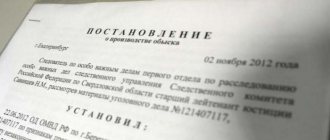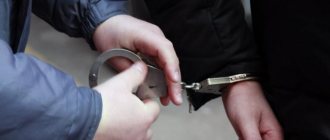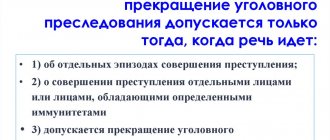1. A transaction made by one person (representative) on behalf of another person (represented) by virtue of authority based on a power of attorney, an indication of the law or an act of an authorized state body or local government body directly creates, changes and terminates the civil rights and obligations of the represented .
Authority may also be evident from the environment in which the representative operates (retail salesperson, cashier, etc.).
2. Persons who act, although in the interests of others, but on their own behalf, persons who only convey the will of another person expressed in proper form, as well as persons authorized to enter into negotiations regarding possible future transactions, are not representatives.
3. A representative cannot make transactions on behalf of the represented person in relation to himself personally, as well as in relation to another person whose representative he is at the same time, except for cases provided for by law.
A transaction that was made in violation of the rules established in paragraph one of this paragraph, and to which the principal did not give consent, may be declared invalid by the court at the request of the principal if it violates his interests. Violation of the interests of the represented person is assumed unless proven otherwise.
4. It is not allowed to carry out a transaction through a representative, which by its nature can only be completed in person, as well as other transactions specified in the law.
- Article 181.5. Nullity of the meeting's decision
- Article 183. Concluding a transaction by an unauthorized person
Photo gallery
Many people have their own cars, of various brands, configurations, tuned and simply “gray” cars for everyday driving. Some make various gadgets for cars with their own hands, some send them to special services, and others simply admire how people do it. Actually, this is what I would like to talk about - tuning!
I didn’t have a car before and somehow didn’t need one, but in my heart I always wanted to sit, steer and enjoy the speed. The first step to buying a car was getting a driver's license, which I also went to study for spontaneously. In general, I studied for 3 months in DOSAAF and on February 29, 2008 I received my driver’s license. From time to time there was a desire to buy a car, but there was no money to buy it, and I began to think about it – where should I go?
Time passed, years flew by, rumors circulated about a crisis. By that time, we had managed to save a little cash, which we finally decided to invest in some kind of automobile before it disappeared. One wonderful morning, we got ready and went to the car market in Saratov to choose a car for me. I had to borrow a considerable additional amount of cash from friends, otherwise my savings were not enough.
We set off on the road, drove and drove, and finally arrived. Let's go to the market.
There were a lot of cars in Saratov, some not for our money, others too dead, in general, we wandered and wandered and saw a red VAZ2110 (my favorite color). After some time, after a lot of walking, it was finally decided to buy the first car I liked and finally go home.
The path to home was not close, about 200 km. At first, I thought that my friend would drive and drive my car to my native Kamyshin, but I still drove it back myself. This is my very first time when I drove for so long, because the last time I held it in my hands was back in February and that was for about 10 minutes. For the first 10-20 minutes I couldn’t come to my senses that I was sitting behind my own car, My hands were shaking a little and I still couldn’t believe that I was going. Literally, after driving 50 kilometers, I already began to feel much more confident, fell back on the seat and began to enjoy the trip.
Everything would be fine, but in Krasnoarmeysk at the traffic police checkpoint we were stopped to check our documents. And I stupidly took only my license with me, and the rest of the documents remained with my mother, who drove ahead in another car with a driver. Luckily they stopped about 300 meters from us. The inspector had to wait for some time, to which he made a menacing expression on his face. They brought the documents, checked everything, but still got to the bottom of the fact that there was no first aid kit, fire extinguisher and sign. And the fact that the car even had transit license plates and had just been purchased did not bother him; he had to pay some fine to the Inspector’s fund. We got into the car, refueled and hit the road.
We got home quickly, we drove for about 3 hours in total, although it could have been longer, but I was still a beginner at that time, and the car was not tested, you never know what would break down, so I kept the speed around 100-110 km/h . But still there was a desire to experience the drive and therefore I accelerated once to 155 km/h, the car behaved amazingly on the road, I remained satisfied throughout the journey.
Here is a short story about the steps to buying my first car, which is with me to this day and makes me happy. From time to time I do something for the soul in it, a little tuning, etc. what I will tell you about in my Logbook
.
Express your opinions about my work, and just like that, we can discuss something, further work, plans...
Commentary on Article 182 of the Code of Criminal Procedure of the Russian Federation
1. A search is a procedural forced search carried out in a certain place, which is in the legal possession of a certain person, in order to detect, seize and record objects and documents that may be important to the case, as well as wanted persons and corpses (Art. Art. 182, 184 Code of Criminal Procedure). A search should be distinguished from similar administrative actions: search of things, personal search (Article 27.7 of the Administrative Code), search of a vehicle (Article 27.9 of the Administrative Code), seizure of things and documents (Article 27.10 of the Administrative Code). The search is an investigative action, so it seems that it cannot be carried out in court.
2. The grounds for conducting a search are sufficient data that: a) in someone’s legal (title) possession (some place, some person) there may be objects that are important for the criminal case (objects and documents , living wanted persons or corpses); b) there is a danger (probability) of concealment or destruction of these objects.
3. The compulsory nature of the search during a search is explained by the presence of the danger of concealing the sought items and documents, which distinguishes it from an investigative examination, as well as voluntary extradition (Part 5 of Article 182 of the Code of Criminal Procedure). The search must be distinguished from inspection and according to its final goals. Although the purposes of the search partially coincide with the purposes of the inspection, they still differ from them. Like an inspection, a search is ultimately intended to detect, record and seize objects relevant to a criminal case. However, during a search, the objects of search are objects, documents (including instruments of crime and valuables), corpses, while during an inspection, traces of a crime (for example, fingerprints, etc.) can also be established. In contrast to an inspection, the purpose of a search may be to locate wanted living persons (Part 16 of Article 182). During a search, as well as during an inspection, the surrounding situation may be recorded, but not for the purpose of restoring the overall picture of the incident, but only to clarify the circumstances of the discovery, storage and seizure of the objects being sought. Optionally, a search may differ from an inspection and in location. A search is always carried out in a place or premises that is in the legal (title) <1> possession of a certain individual, legal entity or government body, while an inspection can be carried out both in title possession (for example, in a home) and in a place , which does not have a specific owner (for example, on the street of a populated area), or ownership that is untitled. Conducting a search in such cases is redundant and can be limited to inspection or verification of evidence on the spot (for example, when it is necessary to find and seize stolen property hidden by a suspect in an abandoned ownerless building in which he was hiding). In this case, doubts about the legal (title) nature of ownership should be interpreted in favor of the actual owner, who in this case is not inspected, but searched (provided that there is a danger of concealing the objects being sought).
——————————— <1> Title ownership is ownership based on any right. In contrast, non-title (actual) ownership is not based on any legal basis (see: Big Legal Dictionary. M.: Infra-M, 1997. P. 694).
In certain cases, non-title actual ownership as an exception may still give rise to certain legal consequences. Thus, the person who carried out the unauthorized construction does not acquire the right of ownership to it (titleless possession); the unauthorized construction is subject to demolition by the person who carried it out or at his expense (Part 2 of Article 222 of the Civil Code). However, under certain conditions, such a person may be recognized as having ownership of an unauthorized structure, therefore, other things being equal, it seems that a search should be carried out in an unauthorized structure.
Another situation may arise when the object acting as a storage facility in which a search must be undertaken is in someone’s property, but was removed from the owner’s possession as a result of criminally unlawful actions (for example, the theft of a ship or car). It seems that in this case an inspection should be carried out, not a search, since the sign of title ownership is also absent here (for example, when weapons and explosive devices are discovered and seized in a stolen car after the terrorists who used it are detained).
4. When making assumptions about the location of the desired objects for the purpose of conducting a search, not only evidence, but also non-procedural information (for example, the results of an operational investigation) can be taken into account. However, it should be remembered that the search affects key constitutional human rights, and therefore non-procedural information alone without the presence of criminal procedural evidence cannot justify its conduct (especially when the judge gives permission to search in accordance with Parts 2 - 4 of Art. 165 Code of Criminal Procedure). It seems that only evidence can justify (albeit at a probabilistic level) the assumption of who may have the desired objects, while the assumption of where exactly they are located, in a given room or area, can be based both on evidence, and on other non-procedural information, as well as simply on investigative experience. For information on the conditions for conducting a search, see com. to Art. 164.
5. The grounds and content of a search distinguish it from a similar investigative action - seizure. A search requires probable data about the item being sought and its location; the content of the search consists of search actions. To extract, you need to know exactly (reliably) what object is and where it is (Part 1, Article 183), so there are no search actions.
6. Literal interpretation of Part 2 of Art. 29 and art. 182 of the Code of Criminal Procedure allows us to come to the incorrect, in our opinion, conclusion that only personal searches and searches in the home are carried out by court decision (Part 3 of Article 182), and all other types of searches, without exception, do not require additional sanctions. At the same time, procedural norms and guarantees must be considered taking into account their goals, and in such a way that their literal or even formal-logical interpretation does not lead to obvious contradictions (absurdity). Thus, one should take into account the fact that a search is carried out on less grounds and more seriously restricts the rights of citizens than a seizure. At the same time, some types of seizure require a court decision (seizure of objects and documents containing state or other secrets protected by federal law - clause 7, part 2, article 29, part 4, article 183). But in the same cases, if we proceed from the literal interpretation of the law, the search is carried out without any permission or consent, moreover, not on a reliable basis (as is required for a seizure), but only on a probable basis. Then special authorization of the seizure would lose all meaning. Indeed, why would an investigator justify in court evidence the need to seize bank documents if he could instead search a credit institution and seize them without any permission? This obvious contradiction provides the basis for a broad interpretation of the rules contained in paragraph 7 of part 2 of Art. 29 and part 4 of Art. 183 Code of Criminal Procedure. According to this interpretation, forced seizure (not only during seizure, but also during search) of objects and documents containing state or other secrets protected by federal law, including bank secrecy, requires judicial permission. This interpretation actually coincided with the legal position of the Constitutional Court of the Russian Federation, set out in Determinations No. 10-O dated January 19, 2005, No. 427-O-O dated May 29, 2007. It should be noted that a number of federal laws provide for the need to obtain a court decision to conduct certain types of searches. These laws have priority over the Code of Criminal Procedure, since they are specifically designed to regulate separate groups of social relations. The Constitutional Court of the Russian Federation consistently points out the inadmissibility of conducting a search without judicial permission: a) in relation to a lawyer, including in residential and office premises used for legal practice (Definition of 08.11.2005 N 439-O; see: Part 3 of Art. 8 Federal Law of May 31, 2002 N 63-FZ “On advocacy and the legal profession in the Russian Federation”); b) in relation to items and documents containing audit secrets (Definition of the Constitutional Court of the Russian Federation dated March 2, 2006 N 54-O; See: Article 9 of the Federal Law dated December 30, 2008 N 307-FZ “On auditing activities”).
7. Voluntary release of an item before the start of search operations has the legal significance of an evidentiary fact: a) active repentance (as a basis for termination of the case under Article 28 of the Code of Criminal Procedure as a mitigating circumstance), if the person who issued the item could still have disposed of it differently (destroy the drugs) <1 >; b) refuting the version of the planting of the object during the search; c) confirming conscious possession of this item. According to the notes to Art. 222 and art. 228 of the Criminal Code of the Russian Federation (as amended on December 8, 2003) does not recognize the voluntary surrender of drugs or weapons during a search and, therefore, does not exempt from criminal liability. However, it should be taken into account that voluntary surrender may begin before the search and lead to release from criminal liability, regardless of the method of actual seizure of weapons or drugs. For example, a citizen tells the police over the phone about his desire to voluntarily surrender his weapon, which is then confiscated during a search. Judicial practice establishes the obligation of investigative bodies to provide the opportunity to the accused (suspect) to voluntarily hand over weapons or drugs so that he can take advantage of the provisions of the criminal law, according to which the person who voluntarily gives up weapons is exempt from criminal liability <2>;
——————————— <1> See: paragraph 19 of the Resolution of the Plenum of the Armed Forces of the Russian Federation dated June 15, 2006 N 14 “On judicial practice in cases of crimes related to narcotic drugs, psychotropic, potent and toxic substances " <2> See: Resolution of the Presidium of the Armed Forces of the Russian Federation dated March 26, 2003 N 969p02.
8. During a search, items that are completely prohibited for circulation (withdrawn from circulation) are additionally confiscated - Part 2 of Art. 129 of the Civil Code, and things whose circulation is limited may also be confiscated (Part 2 of Article 129 of the Civil Code). These items are confiscated without proper permission to possess them.
9. A feature of the search is the requirement to ensure the mandatory participation in it of the person in whose premises the search is being carried out, or adult members of his family. According to the meaning of the Code of Criminal Procedure, the owner of the object being searched (and not just the premises), or his representative (analogous to Part 6 of Article 177 and Part 15 of the Comrade Article), or persons living in the dwelling are invited to participate in the search. Failure to comply with this requirement, if there is an opportunity to fulfill it, is a significant violation of the procedural law (Part 3 of Article 7) and entails the inadmissibility of the evidence obtained <1>. In emergency situations, owner participation cannot be ensured. The Code (Part 6 of Article 177 of the Criminal Procedure Code) only provides for a record of this in the protocol. More successful was a similar norm of the Code of Criminal Procedure of the RSFSR (Part 2 of Article 169 of the Code of Criminal Procedure), which allows for the invitation of a representative of a housing maintenance organization or local government. It seems that at the level of recommendations it is advisable to use it at the present time. The investigator does not have the right to refuse the presence of a defense attorney (Clause 5, Part 1, Article 53 of the Code of Criminal Procedure) or the lawyer of the owner of the object being searched during the search. Moreover, to ensure the admissibility of the search results, it is advisable for the investigator to involve a defense attorney or lawyer in the case. In this case, the requirements for the surprise of the search may well be met (the defense attorney is invited to the investigator’s office at a certain time to participate in some investigative actions, only after the search begins he only learns that this is a search). Taking into account the Resolution of the Constitutional Court of the Russian Federation of June 27, 2000 N 11-P in the Maslov case, a person against whom a search is carried out with the aim of convicting him of committing a crime has the right to defense, since he is in the position of a suspect in the constitutional sense of the word. Therefore, his lawyer must have all the rights of a defense attorney.
——————————— <1> See: Resolution of the Presidium of the RF Armed Forces N 969p02 in the Protasov case.
10. If damage to property during a search raised doubts about the reliability of the evidence obtained or was a means of illegally influencing the suspect or accused (compelling him to testify under the threat of damaging property), then it entails the inadmissibility of the evidence obtained.
11. A special guarantee of respect for the rights and legitimate interests of citizens during a search is the possibility of appealing the decision to conduct a search and its results directly to the court, which was directly noted by Resolution of the Constitutional Court of the Russian Federation of March 23, 1999 N 5-P. For more information, see com. to Art. Art. 125, 165.










